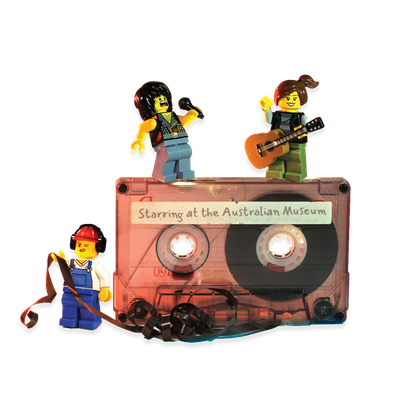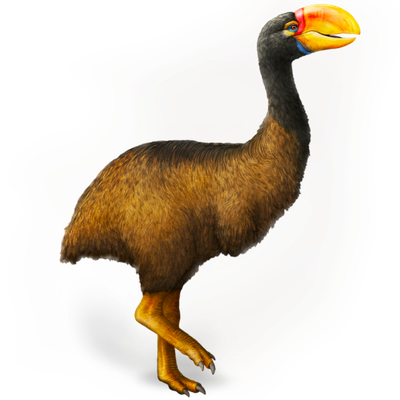Your search returned 12454 results
By Page Type
By Tag
- fish (966)
- blog (696)
- fishes of sydney harbour (401)
- First Nations (299)
- Blog (236)
- AMRI (169)
- archives (164)
- Eureka Prizes (146)
- Aboriginal and Torres Strait Islander (135)
- insect (126)
- Ichthyology (124)
- geoscience (109)
- minerals (102)
- climate change (100)
- podcast (94)
- Fish (91)
- Anthropology (89)
- International collections (80)
- Minerals Gallery (78)
- wildlife of sydney (78)
- Labridae (77)
- frog (74)
- gemstone (70)
- history (64)
- photography (64)
- Mollusca (60)
- gem (59)
- staff (59)
- Birds (56)
- Gems (56)
- Indonesia (56)
- education (56)
- shark (55)
- AMplify (54)
- people (53)
- earth sciences (50)
- past exhibitions (50)
- exhibition (49)
- Gobiidae (48)
- sustainability (46)
- Pomacentridae (45)
- Serranidae (44)
- lifelong learning (42)
- science (42)
- Earth and Environmental Science (41)
- Syngnathidae (41)
- Ancient Egypt (40)
- Bali (40)
- bird (40)
- dangerous australians (40)
-
Six reasons for hope in the face of climate change: Professor Lesley Hughes
https://australian.museum/learn/news/blog/pioneering-australian-ecologist-wins-2019-australian-museum-research-institute-lifetime-achievement-award/Read pioneering ecologist Professor Lesley Hughes's inspiring speech on the occasion of her acceptance of the 2019 AMRI Lifetime Achievement Award.
-
Test tubes, tissue and tigers: an internship at the Australian Centre for Wildlife Genomics
https://australian.museum/learn/news/blog/test-tubes-tissue-and-tigers/Intern Ruby Bruce gives insight into her three weeks at the Australian Museum's innovative wildlife DNA laboratory.
-
Mountain hopping for frogs
https://australian.museum/learn/news/blog/mountain-hopping-for-frogs/Surveying the “roof of Indochina” for two of Vietnam’s most threatened frogs.
-
Lace corals around Lizard Island
https://australian.museum/learn/news/blog/lace-corals-around-lizard-island/Due to over exploitation for economic uses, stylasterids are considered threatened with extinction. After 33 dives to 29 sites around Lizard Island and the outer reef, Dr Daniela Pica preliminarily identified the presence of up to 11 species.
-
Blood worms – more diverse than fishes can tell
https://australian.museum/learn/news/blog/blood-worms-more-diverse-than-fishes-can-tell/Currently, we know that Australian bloodworms, traditionally thought to be a single species, make up at least seven different species.
-
Podcast – Lunchtime Conversation Series: Noel Gordon
https://australian.museum/learn/news/blog/lunchtime-lecture-noel-gordon/Software engineer Noel Gordon was part of the team that developed Google Maps. He recounts its development in conversation with AM Director and CEO Kim McKay.
-
What does a frog eat when the forest disappears?
https://australian.museum/learn/news/blog/what_does_a_frog_eat_when_the_forest_disappears/How habitat disturbance impacts the diet of a forest-dependent frog species.
-
Live at the AM podcast: HumanNature 2019 – Macerena Gomez-Barris
https://australian.museum/learn/news/blog/human-nature-macerena-gomez-barris/Venture into the cacophonous space of the forest with Macarena Gómez-Barris of the Pratt Institute, Brooklyn USA, as she considers its contested conceptual, indigenous and potentially regenerative narratives
-
A century plus of marineinvertivol
https://australian.museum/learn/news/blog/marineinvertivol/The year was 1994, Nelson Mandela was elected President of South Africa, Paul Keating was Australian Prime Minister and a remarkable association began in the Australian Museum Marine Invertebrates section.
-
Live at the AM podcast: HumanNature 2019 – Andrea Gaynor
https://australian.museum/learn/news/blog/humannature-podcast-andrea-gaynor/Hold the past to account with Andrea Gaynor, University of Western Australia as she proposes `radical remembering’ to actively confront the challenges of the Anthropocene.
-
Discover more
2025 Australian Geographic Nature Photographer of the Year
Special exhibition
Free entry
Now open -
Discover more
Unfinished Business
Special exhibition
Free entry
Now open -
Find out more
Surviving Australia
Permanent exhibition
Free entry
Now open![]()
-
Find out more
Burra
Permanent kids learning space
Free entry
10am - 4.30pm![]()
-
Discover more
Minerals
Permanent exhibition
Free entry
Open daily![]()





